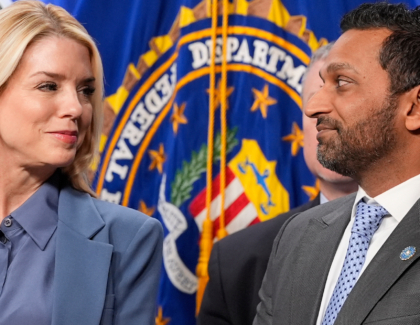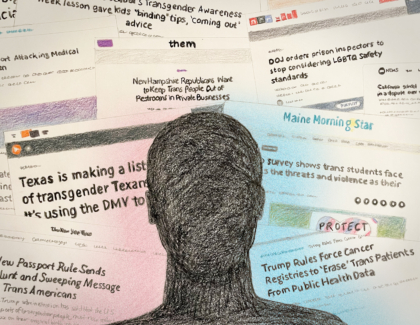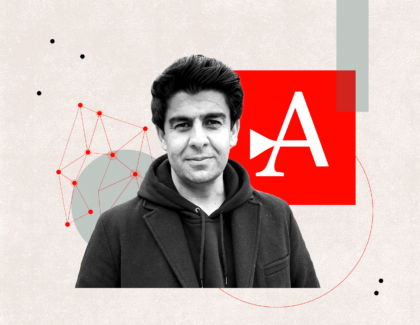Sign up for the daily CJR newsletter.
DETROIT, MI — In Ohio, Kent State University recently conducted a presidential search that was so secretive that search committee members have admitted to shredding documents to cover their tracks. “The notes are gone,” one committee member told staff writer Carol Biliczky of the Akron Beacon Journal. “Everything’s been taken care of. We shredded anything with personal data.”
Across the state line in Michigan, both Wayne State University and the University of Michigan have also conducted secret presidential search processes in the past year, announcing the final candidate only at the meeting where the hire was made. That’s not all: At U-M, members of the Board of Regents deliberate on even minor matters in private before holding perfunctory votes in public.
The increasingly closed-door culture of some university boards has frustrated journalists in both states—but it’s also energized them, judging from recent aggressive coverage from several publications that has called out opaque practices and potential legal violations. “They’re starting to act like a corporate board,” says David Jesse of the Detroit Free Press, who has catalogued a startling lack of transparency at U-M in particular. “You wouldn’t have the same standards of scrutiny on a corporate board as on a public board of elected officials. But they are still elected officials of a public university, and there needs to be some public accountability for how they make decisions.” (Disclosure: I’m a U-M alum, and I occasionally contribute articles to the Free Press.)
At Kent State, it’s worth noting that it’s the search process that’s being criticized, not the candidate who was ultimately selected. There appears to be widespread agreement that Beverly Warren, the provost of Virginia Commonwealth University, is well qualified for the job.
Still, the Beacon Journal is not letting the university’s approach go unchallenged. Biliczky’s excellent April 12 story points out that search committee members had to sign confidentiality agreements, and that the private search firm hired by the university had an addendum to its contract that gave it the power to decide what records to make public. The search cost $250,000 of public money, and the university will explain only in general terms how it was spent. The revelations in her story spurred more than two dozen members of the school’s journalism faculty to take out a full-page ad in the student paper saying they were “embarrassed” by the administration’s stance.
Kent State officials told reporters in Ohio that they followed a common approach in their search process, and that they turned over all relevant documents and complied with public records laws.
But Doug Oplinger, managing editor of the Beacon Journal, begs to differ. “They use public money and we believe that this process should be open, as the state law says.”
Ohio law requires documents on employee searches to be made public upon request. As Biliczky’s article notes, “That obligation extends to materials ‘in the sole possession of private search firms used in the hiring process,’ according to Ohio Attorney General Mike DeWine’s Sunshine Manual.”
Oplinger believes universities like Kent State are trying to take advantage of the relative weakness of newsrooms suffering from cutbacks and declining revenues. “They know newspapers no longer have the money to file lawsuits,” he says. When Kent State hired its outgoing president in a similarly secretive manner, the Beacon Journal prepared to sue. That prompted the university to release the relevant information, rather than go to court. “We assumed they learned their lesson,” Oplinger said. “Obviously, they haven’t.”
Part of the issue is that in Ohio and elsewhere, public institutions like universities are privatizing parts of their operations, including the search for college presidents. That creates situations where university officials can claim that public sunshine laws don’t apply to some material. And, those officials say, some candidates won’t participate in a search that is not confidential.
Kent State is not unique, even in Ohio. The much larger Ohio State University also recently conducted a secretive search for a new president. The Cleveland Plain Dealer (which has a story-sharing agreement with the Beacon Journal) pointed out in an April 28 story that Ohio State’s behind-closed-doors search generated little criticism, though it likely cost considerably more public money than Kent State’s. The Plain Dealer raised similar transparency issues in 2009, when Cleveland State University undertook its presidential search, and again last year when Cuyahoga Community College wouldn’t name the finalists for its president job—until after the paper reported that this stance conflicted with Ohio Supreme Court rulings. Recapping the Cleveland State case in a recent article, reporter Karen Farkas wrote that, “CSU staffers stood watch on the loading dock of the Wolstein Center as [candidates] were sneaked in for meetings with board members, senior staffers and faculty.”
In contrast, the Beacon Journal’s Oplinger said, recent presidential searches at the University of Akron and Youngstown State University were “entirely open.”
At some of Michigan’s largest public universities, according to Jesse, the opacity extends well beyond presidential searches. Public board meetings are perfunctory, with the discussion and decision already completed, according to his comprehensive March 30 story:
A Free Press review of board votes at the state’s three largest universities from January 2013 — when newly elected board members took their seats at MSU, WSU and U-M — to February 2014, found 279 board votes. According to meeting minutes, board members commented during votes on 12 of those issues and there was at least one “no” vote cast on 11 of those issues. During that time, no issue brought to any of the three boards has been rejected in a public vote.
The real work happens in back-channel conversations or in committee meetings—and at MSU and U-M, those meetings are closed to the public, leading to this Kafka-esque passage:
Even with sensitive issues—such as tuition increases—faculty, students and taxpayers are essentially excluded from the discussion until the last minute, when the decisions have already been solidified by board members amongst themselves.
The use of private meetings even extends to more minor issues. After a Free Press reporter asked U-M board members about meeting privately, the board met behind closed doors to discuss the request and issued a statement defending such meetings as legal and necessary.
“The Free Press’ position is that it’s really bordering on illegal,” Jesse said in an interview, noting that Michigan’s constitution requires university boards to have formal meetings in public. “The way they get around it is they call everything an informal meeting.”
In Michigan, the state courts have ruled that the Open Meetings Act doesn’t apply to university boards in some circumstances, and many public universities have taken to mean that they have a near-total exemption to meeting transparency—an interpretation that many journalists dispute. Republican State Rep. Tom McMillan has sponsored a measure that could break this standoff: In the next general election, it would ask Michigan voters to amend the state constitution election, mandating that university boards comply with the Open Meetings Acts. The joint resolution was referred to committee in mid-March.
At the public U-M Board of Regents meetings, Jesse can’t even question officials after a vote. The board is shielded from reporters and the public in a meeting room that is split in two by rope barriers guarded by police officers. “I can’t just walk up to the table after the meeting and ask questions,” he said. “I have to go through a PR person.” (Presumably, the board is trying to avoid more uncomfortable moments like this.)
So, how can a reporter break through?
Jesse said that, as in any other beat, developing sources is crucial: On some key decisions, he’s able to get people on the board, or “around the board,” to help explain things to him, though this is usually after the decisions are made.
In Ohio, the Beacon Journal is continuing its aggressive coverage of the Kent State story, and has a new lawyer advising the paper (and also The Plain Dealer) on how to best fight the battle on the news pages. Oplinger is also urging his reporters to be more persistent—to call people who they think won’t talk to them. “That’s been very fruitful,” he said. “Sometimes it’s not for attribution, which allows us to ask better questions, and sometimes it’s on the record. This new attitude of ‘what the hell, just ask,’ is what led some on the search committee to say, ‘we’re shredding documents.’ Well, that’s a hell of a story.”
And, he adds, “We’ve got to keep thinking about how to fine-tune record requests so we get what we need to write stories that are really important to the public. Right now, government is trying to take advantage of the tendency of reporters to go for low-hanging fruit.”
Has America ever needed a media defender more than now? Help us by joining CJR today.






